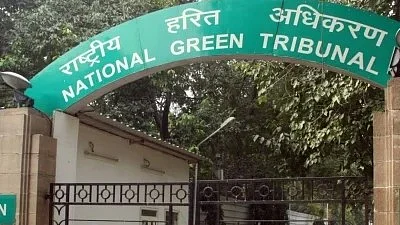NGT takes suo motu cognisance of textile waste crisis in Bengaluru
NGT report highlights unsafe disposal practices, including mixing hazardous cotton waste with domestic trash, raising pollution risks

In the heart of India’s ‘garment capital’, where threads of fashion weave fortunes, a darker trail of waste and pollution has begun to unravel.
Alarmed by this toxic underside of Bengaluru’s booming textile industry, the National Green Tribunal (NGT) has stepped in, taking suo motu cognisance of the crisis.
Acting on the report “Bengaluru’s garment boom leaves a toxic trail”, a Bench led by NGT chairperson Justice Prakash Shrivastava registered a suo moto case, flagging the environmental dangers posed by nearly 5,000 tonnes of fabric waste generated annually in the city. The bench also included expert members Dr. A. Senthil Vel, Sudhir Kumar Chaturvedi, and Dr. Sujit Kumar Bajpayee.
A study by the Institute for Social and Economic Change (ISEC) revealed that while export-oriented factories often manage waste responsibly, smaller units and tailoring shops routinely dump fabric scraps with household garbage, intensifying the crisis. The tribunal observed that only 40 per cent of Bengaluru’s textile waste is recycled in hubs like Tiruppur and Panipat, while about 20 per cent is downcycled into low-grade items such as mattresses and dolls. These, however, last barely a decade before ending up in landfills or being incinerated.
The report also highlighted unsafe disposal practices, including mixing hazardous cotton waste with domestic trash, raising pollution risks. Workers in the sector, the tribunal noted, often endure hazardous conditions without proper safety equipment or social protection.
In its order dated 2 September, the NGT said the violations point to lapses under the Environment (Protection) Act, 1986, the Hazardous and Other Wastes (Management and Transboundary Movement) Rules, 2016, and the Air (Prevention and Control of Pollution) Act, 1981.
The tribunal impleaded multiple authorities as respondents—the Karnataka State Pollution Control Board, Bruhat Bengaluru Mahanagara Palike (BBMP), Central Pollution Control Board (CPCB), and the Union Ministry of Environment, Forest and Climate Change (MoEF&CC), through its Bengaluru regional office. The case has been transferred to the NGT’s Southern Zonal Bench in Chennai, which will hear it next on 9 October.
The order directed all respondent authorities to file affidavits at least one week before the next hearing and mandated their virtual presence if replies are submitted directly without routing through advocates.
With IANS inputs
Follow us on: Facebook, Twitter, Google News, Instagram
Join our official telegram channel (@nationalherald) and stay updated with the latest headlines
